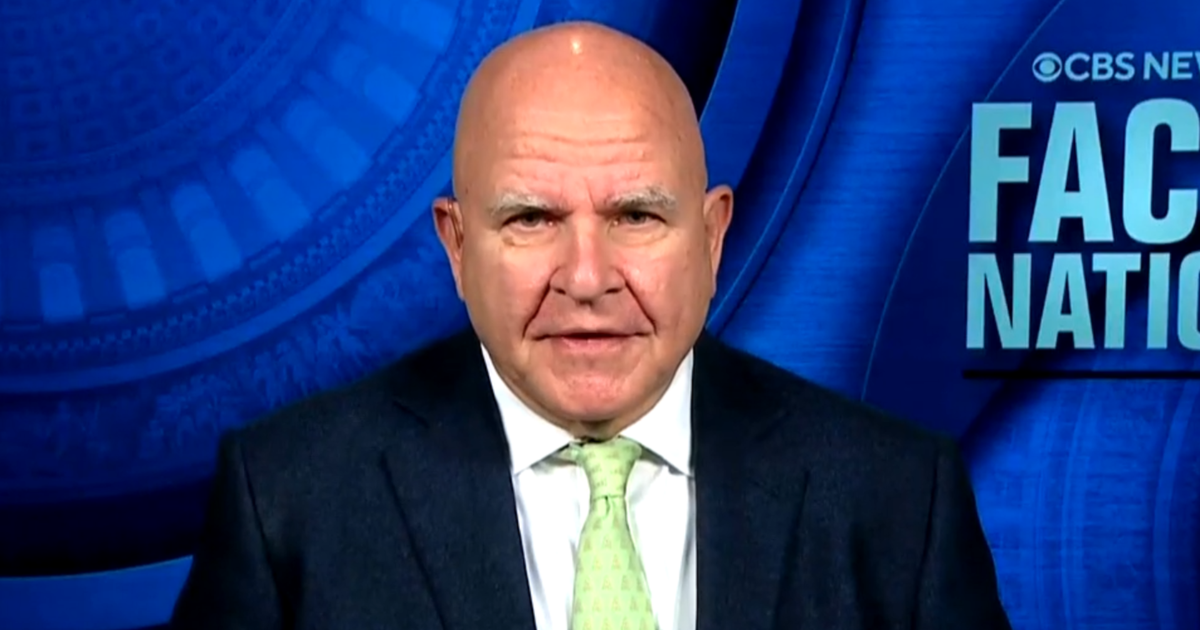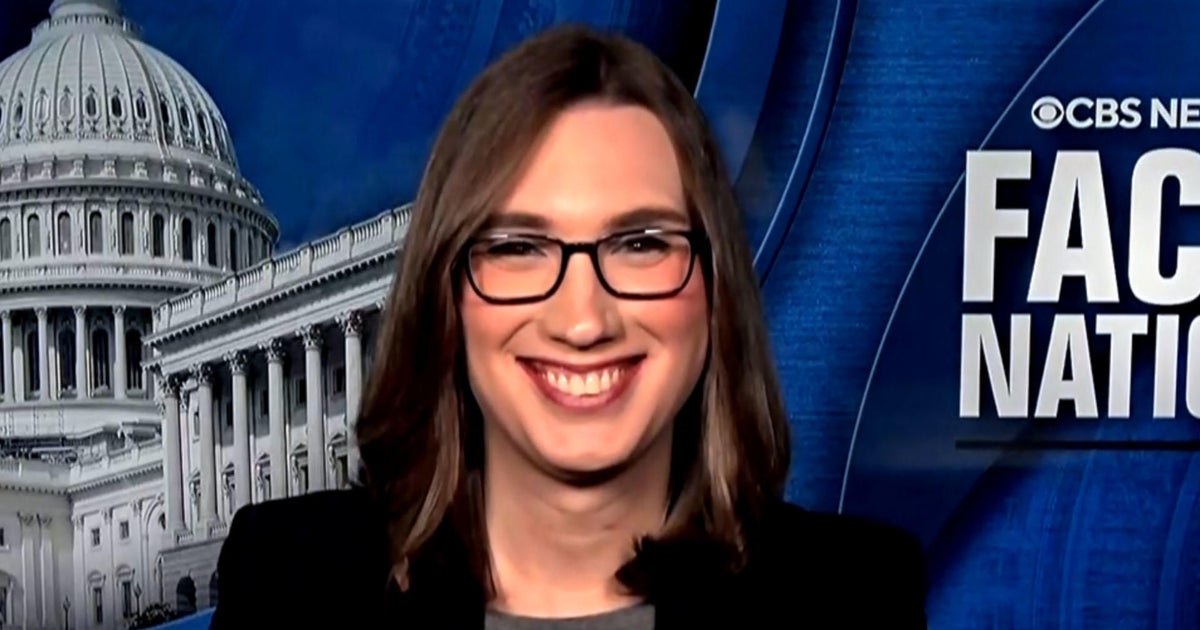CBS News
Swimmer Lia Thomas’ case against World Aquatics transgender athlete rules dismissed

Lia Thomas’ attempt to challenge World Aquatics’ policy for transgender athletes has been dismissed. Thomas, a transgender woman, argued the ruling was discriminatory and took legal action against it earlier this year, but the Court of Arbitration for Sport ruled this week she is not entitled to challenge the rules.
Thomas has not registered to compete in any World Aquatics events and is no longer a member of US Swimming, according to the ruling obtained by CBS News. Thomas, the court said, is “not sufficiently affected by the rules” and therefore cannot challenge them.
The Court of Arbitration for Sport, or CAS, says transgender women can compete in World Aquatic events under two conditions: they did not experience male puberty or their male puberty was suppressed before age 12, and their testosterone levels are consistently below 2.5nmol/L.
USA Swimming’s policy states transgender women must have less than 5 nmol/L of testosterone consistently for 36 months before they can compete at elite levels. But the policy also states that to compete in international events, a transgender woman must meet World Aquatics criteria.
AP Photo/Josh Reynolds
In 2022, World Aquatics voted to prevent trans women who have gone through any male puberty from competing elite events, according to BBC News.
When Thomas filed her challenge to the ruling earlier this year, the court said she “accepts that fair competition is a legitimate sporting objective and that some regulation of transgender women in swimming is appropriate.” But she argued that the provisions she was challenging were invalid and unlawful as they discriminate against her.
CBS News has reached out to World Aquatics, CAS and a attorney for Thomas and is awaiting response.
Thomas was a star on the University of Pennsylvania swim team, earning the best 200-meter freestyle time in the 2022 NCAA season and finishing nearly 40 seconds ahead of her closest competitor in one race.
Thomas previously swam on the men’s team and followed NCAA and Ivy League rules when she began transitioning in 2019. Thomas said during a podcast interview that her coach, Mike Schnur, and team were “unbelievably supportive since the beginning.” Both the university and the Ivy League also released statements supporting Thomas.
But her competing on the women’s team was also met with criticism. While a group of her teammates penned a letter of support, 16 U Penn athletes wrote an anonymous letter to the NCAA saying she should not be allowed to swim on the women’s team.
The issue sparked debate among other athletes and non-athletes. Eighteen-time tennis Grand Slam winner Martina Navratilova wrote on social media that it’s “not fair for women to race against transgender Lia Thomas.”
Olympic gold medalist Caitlyn Jenner, who came out as a trans woman in 2015, said “we need to protect women’s sports,” when talking about Thomas.
Schuyler Bailar, who became first trans athlete to compete on a NCAA Division 1 men’s team when he swam for Harvard, has supported Thomas, whom he once competed against. He said while she receives backlash, many of the messages Thomas receives are positive and sympathetic.
“The story is that trans women are going to destroy women’s sports, and that’s also just false,” Bailar said. “People want to police the women’s category. People care a lot about what they think constitutes womanhood, and a lot of people want to police exactly what womanhood looks like, and end up policing trans women as a result.”
CBS News
Former Trump national security adviser says next couple months are “really critical” for Ukraine

Washington — Lt. Gen. H.R. McMaster, a former national security adviser to Donald Trump, said Sunday that the upcoming months will be “really critical” in determining the “next phase” of the war in Ukraine as the president-elect is expected to work to force a negotiated settlement when he enters office.
McMaster, a CBS News contributor, said on “Face the Nation with Margaret Brennan” that Russia and Ukraine are both incentivized to make “as many gains on the battlefield as they can before the new Trump administration comes in” as the two countries seek leverage in negotiations.
With an eye toward strengthening Ukraine’s standing before President-elect Donald Trump returns to office in the new year, the Biden administration agreed in recent days to provide anti-personnel land mines for use, while lifting restrictions on Ukraine’s use of U.S.-made longer range missiles to strike within Russian territory. The moves come as Ukraine marked more than 1,000 days since Russia’s invasion in February 2022.
Meanwhile, many of Trump’s key selection for top posts in his administration — Rep. Mike Waltz for national security adviser and Sens. Marco Rubio for secretary of state and JD Vance for Vice President — haven’t been supportive of providing continued assistance to Ukraine, or have advocated for a negotiated end to the war.
CBS News
McMaster said the dynamic is “a real problem” and delivers a “psychological blow to the Ukrainians.”
“Ukrainians are struggling to generate the manpower that they need and to sustain their defensive efforts, and it’s important that they get the weapons they need and the training that they need, but also they have to have the confidence that they can prevail,” he said. “And any sort of messages that we might reduce our aid are quite damaging to them from a moral perspective.”
McMaster said he’s hopeful that Trump’s picks, and the president-elect himself, will “begin to see the quite obvious connections between the war in Ukraine and this axis of aggressors that are doing everything they can to tear down the existing international order.” He cited the North Korean soldiers fighting on European soil in the first major war in Europe since World War II, the efforts China is taking to “sustain Russia’s war-making machine,” and the drones and missiles Iran has provided as part of the broader picture.
“So I think what’s happened is so many people have taken such a myopic view of Ukraine, and they’ve misunderstood Putin’s intentions and how consequential the war is to our interests across the world,” McMaster said.
On Trump’s selections for top national security and defense posts, McMaster stressed the importance of the Senate’s advice and consent role in making sure “the best people are in those positions.”
McMaster outlined that based on his experience, Trump listens to advice and learns from those around him. And he argued that the nominees for director of national intelligence and defense secretary should be asked key questions like how they will “reconcile peace through strength,” and what they think “motivates, drives and constrains” Russian President Vladimir Putin.
Trump has tapped former Rep. Tulsi Gabbard to be director of national intelligence, who has been criticized for her views on Russia and other U.S. adversaries. McMaster said Sunday that Gabbard has a “fundamental misunderstanding” about what motivates Putin.
More broadly, McMaster said he “can’t understand” the Republicans who “tend to parrot Vladimir Putin’s talking points,” saying “they’ve got to disabuse themselves of this strange affection for Vladimir Putin.”
Meanwhile, when asked about Trump’s recent selection of Sebastian Gorka as senior director for counterterrorism and deputy assistant to the president, McMaster said he doesn’t think Gorka is a good person to advise the president-elect on national security. But he noted that “the president, others who are working with him, will probably determine that pretty quickly.”
CBS News
Sen. Van Hollen says Biden is “not fully complying with American law” on Israeli arms shipments

Watch CBS News
Be the first to know
Get browser notifications for breaking news, live events, and exclusive reporting.
CBS News
Rep.-elect Sarah McBride says “I didn’t run” for Congrees “to talk about what bathroom I use”

Watch CBS News
Be the first to know
Get browser notifications for breaking news, live events, and exclusive reporting.




